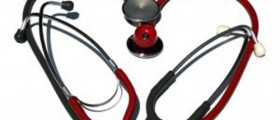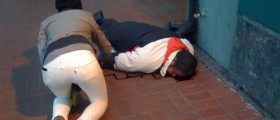
Fainting, also commonly known as loss of consciousness, is a condition which takes place due to a lack of blood delivered to the brain. Once you faint, you usually come back to normal after a short while. Nevertheless, before you faint, you are likely to experience certain symptoms.
Signs of Imminent Fainting
Before people faint, they usually experience dizziness and lightheadedness. Also, confusion and nausea may take place, along with hearing difficulties, tunnel or blurred vision and sweating. The faces of future fainting victims may turn pale or become flushed. The victim may feel hot and experience weakness, trembling and shaking, as well as eye spasms. In some cases of fainting, victims may feel an urge for bowel movement or have certain cramps. Finally, headaches or shortness of breath may strike an individual before he/she loses his/her consciousness.
The Process of Fainting
Fainting is commonly presented as either falling onto your face or your back violently or a glamorously elegant fall accompanied by your hand resting on your forehead.
Yet, in real life, situation is quite different, and fainting can vary from violent to gentle. Once the brain gets deprived of blood, it ceases to send signals to the muscles, triggering the lose of tone, forcing the body to collapse wherever the force of gravity pulls it. When the brain loses its blood supply, this moment manifests through a loss of sensation, along with spasms and a sound in the ears, resembling electric static. In some cases, this phenomenon may look like an abrupt seizure. The phenomenon of losing consciousness resembles greatly the sudden jerk of limbs that people often experience before they fall asleep.
After You Faint...
When a person faints and regains consciousness, he/she is bound to stop sweating. Also, the skin discoloration stops and the pulse returns to normal. Another signs of regaining consciousness is a sudden loss of bowel control.
Stopping Fainting
There are situations where we simply cannot stop the process of fainting overwhelming us. However, knowing what the symptoms are, we can react timely and prevent any further complications by sitting down or moving away from any dangerous surfaces. Keep in mind that frequent bouts of fainting can be the sign of a serious health problem. In that case, you are advised to seek medical attention. Nevertheless, you can do your best to prevent fainting by making sure that you drink enough fluids so that you do not dehydrate.

















Your thoughts on this
Loading...